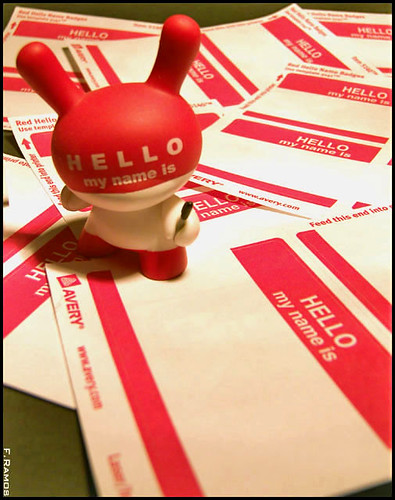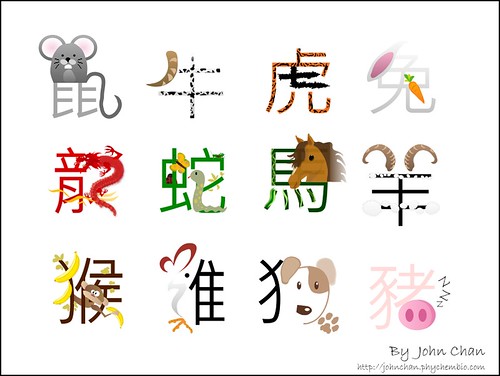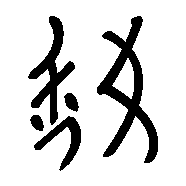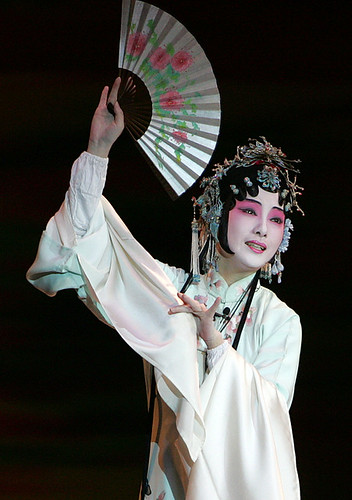Monday, May 19, 2008
Wrapping It Up
Monday, March 31, 2008
10 Days of Starvation?!

The ancient Chinese had many weird rituals and customs during weddings, and usually i can see the meaning behind it, for they made sense somewhat. However, this one particular ritual really made me felt bad for the bride; she couldn't eat during the final 10 days of her wedding festivities. That's TEN days of starvation?! The most weird part is that there is no specified reason for doing this, some people believed it was was done to make the bride sadder for leaving her natal family, to make the bride more yielding to her husband's family, or to make the bride appear more pure. Whatever the case, I think this is completely absurd, and unnecessary. They are hurting the bride's digestive system, which could affect the potential risks of a miscarriage and other baby-related issues, since they prized it as the most vital anyway. On a side curiosity, wouldn't they be scared if she fainted in her fragile state from hunger and nervousness, that would be bad luck for them. Already, her feet is binded and only the length of 7 cm, how could she have the strength to totter in them from 10 days of starvation? I swear, these people can be so ignorant long ago.
Karma
Yin and Yang

The Yin and Yang is a symbol too common in Chinese culture for me not to mention it. The Chinese people are all about balance, and thus, the idea of yin and yang. The concept of yin and yang (or earth and heaven) describes two opposing and, at the same time, complementary and completing aspects of any one phenomenon, or comparison of any two phenomena. Yin stands for "shady place, north slope, southern river; cloudy, overcast", and possesses the qualities of passiveness, darkness, femininity, negativeness, downward-seeking, consuming and corresponding to the night. Yang, on the other hand, means "sunny place, southern slope, northern river, and sunshine", and represents qualities of activeness, light, masculinity, positiveness, upward-seeking, producing and corresponds to the daytime. Thus, the world cannot just have good or bad, but a combination of both to even out the energy of the world, and to create a healthy balance.
Death, a Common and Unpredictable Occurence

Death rate were high during before the 20th century, especially in countries where poverty raved. In the story, a young girl was stung by a bee, and died within a matter of 5 minutes. Nowadays, a first aid kit could have immediately at least subdue the poison from spreading, however, back in the 1900s of rural China, people could only stand by and watch and call for help, only to be dead when help does arrive. This showed how death was almost too common in the daily lives of people; one moment a girl could be in her front yard embroidering dowries for her upcoming marriage, and the next moment, she's dead. I just felt the unfairness of earning a living back then, with people working in the fields from dawn to dusk, in the extremes of the weather, the malnutrition, the stress, and the children they had to take care of; but all this hard work can be so easily taken away by one little accident. Life is too short and unfair.
Sunday, March 30, 2008
Feng Shui

"Feng Shui is an ancient art and science developed over 3,000 years ago in China. It is a complex body of knowledge that reveals the ways to balance the energies of the environment to assure health, wealth and good fortune for people inhabiting it.
"Feng" means "wind" and "shui" means "water" (pronounced fung-shway). In Chinese culture gentle wind and clear water have always been associated with good harvest and good health, thus "good feng shui" came to mean good livelihood and fortune, while "bad feng shui" came to mean hardship and misfortune.
Feng Shui is based on the Taoist vision and understanding of nature, particularly on the idea that the land is alive and filled with energy." (quoted from here)
People use the idea of feng shui to decorate their homes, in order to bring balance and goodness to their homes.
Some Wedding Traditions

The wedding traditions during 18th and 19th centuries were a very interesting ceremony. Red is the main and dominant color, there is endless bowing, there are palanquins to carry the new bride, there is a feast to be served, firecrackers to be lighted, and gifts to be given. Yet two practices i find very interesting is the shoes the bride-to-be has to make as a welcome gift to her in-laws, and the "pouring of the water" when a leave leaves to go to her husband's home in a palanquin. The shoes represented how well a girl was at embroidery and demonstrated her ability at chores , however I don't understand how its shoes and not, like, clothing or something: especially since the chinese has a superstitious idea of never giving shoes to someone, since this will eventually foreshadow them to be your enemies. And as for the "throwing out of the water", its suppose to represent and prove the pureness and cleanliness of the bride-to-be, or her virginity. This is a weird way to express such private concerns, but nonetheless, I feel it interesting.
The Eight Chinese Characters
"The ancient Chinese devised a method of reading the life of a person from his birth year, month, day, and hour. This information is displayed in the form of four columns each consisting of two characters. Each column is called a Pillar. The four pillars together will contain eight characters. This method of Life Reading is called "The Four Pillars of Destiny" or simply "The Eight Characters".
Ancient Chinese used the combinations of two sets of words to denote time. A year is represented by two words. So is a month, a day or an hour.
The first set of words is the set of the "Ten Heavenly Stems". They are the yin and yang components of the Five Elements: Yang Wood, Yin Wood, Yang Fire, Yin Fire , Yang Earth, Yin Earth, Yang Metal, Yin Metal, Yang Water, Yin Water.
The second set of words is the set of the "Twelve Earthly Branches". They are more popularly represented by the twelve animals of the Zodiac: Rat, Ox, Tiger, Rabbit, Dragon, Snake, Horse, Goat, Monkey, Rooster, Dog, Pig. "(From astro-fengshui.com)
These characters were extremely important in determining a person's marriage and friendship in the case of "laotongs". These eight characters were matched at birth, and before making destined decisions, they would be paired up with other people to see if they made a good match, such as a person's future husband/wife. i think this is a very interesting way of fortune- telling.
Losing Face
Saturday, March 29, 2008
What's In a Name?

"What's in a name? That which we call a rose
By any other name would smell as sweet." - Shakespeare
Shakespeare may have believed that a name was just an artificial and meaningless convention, something to refer to someone as. However, the chinese did not share this same belief; instead, a name was chosen and constructed very carefully for a newborn child. This name would make the child grow up to encompass and reflect the meaning of the name, to help the child develop and assimilate this hope, and to create the foundation of who this child could be. For example, in the novel, Snowflower meant snowflake, and this would bring connotations of purity, gentleness, beauty, simplicity, and uniqueness. Beautiful Moon brought ideas of beauty, value, eternalness, brightness, high- achiever, and completeness. I think a name is a very important aspect of a person too, for I don't think we are more or less like "objects"; we are each special and different, with no one else in the world the same as one another. Thus, I believe a well-though- of name indeed does make an impact on how the person will be.
A Beautiful Passage

"Snowflower had the true independent streak of the horse sign, only her horse had wings that carried her far above the earth, while mine had a plodding nature."
I really like passage, and it struck me as very interesting, since it has to do with the chinese zodiac. The zodiac has 12 signs, or rather, animals: rat, snake, ox, rooster, boar, hare, dog, tiger, dragon, monkey, lamb, and horse. The horse is recognized as an independent and free spirited person, and in this passage, two totally juxtaposing personalities can be seen. The horse with the wings reminds me of Pegasus, Hercules' horse. Here, one can assume the freedom and adventure and speed and independence of a god-like creature. On the other hand, the plodding horse is more of a tamed and domesticated animal who is obedient and never goes beyond its border. Indeed, descriptions like these are used to describe some people's personalities, of what type of horse or animal they may be. I find this very interesting.
Click here for a link to learn more about the chinese zodiac and find out what you are!
How Much Are You Worth?
Friday, March 28, 2008
Chinese Poem
Long yearning,
To be in Chang'an.
The grasshoppers weave their autumn song by the golden railing of the well;
Frost coalesces on my bamboo mat, changing its colour with cold.
My lonely lamp is not bright, I’d like to end these thoughts;
I roll back the hanging, gaze at the moon, and long sigh in vain.
The beautiful person's like a flower beyond the edge of the clouds.
Above is the black night of heaven's height;
Below is the green water billowing on.
The sky is long, the road is far, bitter flies my spirit;
The spirit I dream can't get through, the mountain pass is hard.
Long yearning,
Breaks my heart.
Laotong, or "same old"
Nu Shu, Women's Secret Form of Writing

As i've mentioned before, women during the ancient times did write. However, to prevent men from discovering this, a secret form of writing was created by women, and this was called "nu shu". In men's writing, the characters appear bold and precise, each character defined as it is. Nu shu, on the other hand, appears soft, fine, and dainty, the characters resembling mosquito legs. Unlike men's writing, a nu shu character does not represent a specific word. Instead, the characters are phonetic in character, like homonyms. As a result, one character can represent every spoken word with that same sound, for example, pair-pear-pare. Context clues and the surrounding characters is what distinguishes the actual meaning. Usually, this form of writing also has a rhythm to it when recited, making it more unique and secretive.
Women Wrote Too!
Wednesday, January 23, 2008
The Peony Pavilion


http://www.chinapage.com/peony-pavilion.html
To also get a sense of how it would look like on stage performed in the traditional Chinese style, I found a picture of an actress who's playing Liniang (the main character). The costume and make-up is VERY heavy and detailed in this type of drama. It's nice to admire the pictures, but you would NOT want to see it because they speak in the highest pitched, squeakiest, prolonged voice possible. It's very boring and annoying to watch, hence I didn't post any youtube link, but you can definitely look it up if you're interested. This pictures is from a performance at the University of Beijing.
"Mother Love"

On a side note, I am overcome with emotion right now. Although I try to as obedient as possible, and as good to my parents, I've realized I've also caused them pain. I now truly understand this "teng ai" they have for me, and I want to express my love back to them. I LOVE YOU MOM, DAD!
Tuesday, January 22, 2008
"Demonic Child"

This connects with the previous book I read on Adeline, for she was considered as the "black star" (a chinese saying of bad luck) that killed her mother during birth. Adeline in this case would be the demon child that accomplished her goal of killing her mother and surviving herself, and causing misfortune to the family. Yet, this is all just superstitions, because the outcome of Adeline's life was far from this bogus belief.
Tuesday, January 1, 2008
Disillusioned by Love
The Prejudice Against Girls
Men had numerous concubines in hopes of these women would bore them the son that their wife or wives couldn't. It's already bad and unfair to the women that bigamy existed, leaving no happiness for true love and appreciation, but to be thought of a a BABY MACHINE is horrendous! Some women become so disillusioned, that they would trade off their own newborn daughters and STEAL another poor women's newborn son! This was done to secure their status as the wife, or gain favor with their husband. I just can't imagine the trouble people cause just because the father couldn't donate a Y chromosome.
Every ancestral offering and praying just had to revolve around babies too. These people's purpose in life was just to give birth, thus "pomegranates to symbolize fertility, jujubes because the words sounded like having children quickly, and the seven grains, because the Chinese character for kernel was identical in writing and sound to offspring". It's amazing how people can come up with these reasons in food to signify reproduction.
Another thing that made me mad was how women had to obey their men like God. The crazy people even created a book containing the "Four Virtues and Three Obediences". This was like the sacred Bible that every girl must memorize and obey, always bound to remember, "when a daughter, obey your father; when a wife, obey your husband; when a widow, obey your son. Your husband is Heaven". I'm just appalled at this rule. Whoever invented this stuff seriously had no idea the trouble his mother went into bringing him into this world. How ungrateful!